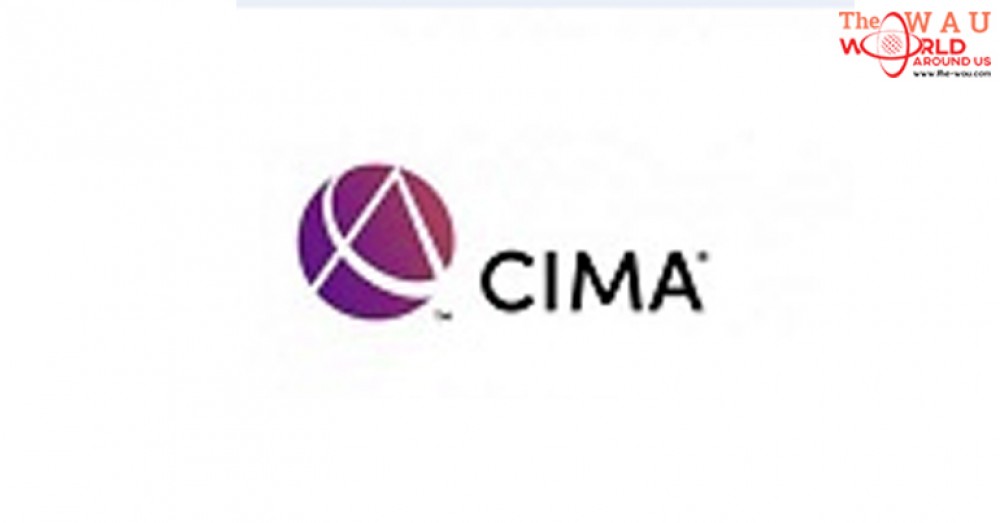“With CIMA, management accountants can better understand not only finances, but the key drivers of strategy and performance.”
Knowledge is power, and more knowledge allows one to make better decisions. For Endre Szakacs, the desire to equip himself with relevant knowledge is what ultimately drove him to pursue his Chartered Institute of Management Accountants (CIMA) qualification via the C-suite programme.
“The most interesting part of my role is to really understand the key drivers of the company’s performance and to identify trends in the market. On a regular basis, these findings need to be reviewed and carefully considered in order to direct the regional strategy of the company,” says Endre from Dubai, where he functions in his role as Business Manager at Credit Agricole’s Corporate and Investment Bank.
“When I researched the CIMA qualification, I saw that it would help me a lot in this,” he adds.
Endre’s career has taken him to interesting places. He started his career at Credit Suisse in London in 2006, before joining Credit Agricole’s Corporate and Investment Bank in 2015 in Dubai. He first came across CIMA when he wanted something different to the accountancy qualifications that his colleagues and friends sat for.

Endre Szakacs (Photo - AETOSWire)
After much research, he decided on CIMA because CIMA was not just about “numbers and accounting”, but its syllabus enables students to have a strategic insight into a company. “My friends work in various banking positions, from management, finance, COO, audit to product control. I discussed with them their experiences while also researching on it myself, and finally decided that I wanted to get my Chartered Global Management Accountant (CGMA) designation,” he explains.
“In my work, I work with lots of information. The world today is all about data. With this data, we make decisions to drive the business. There are so many considerations to take into account, such as legal, risk, audit, front office and so on. CIMA allows me to even better understand the big picture,” Endre adds.
Endre was able to obtain his CIMA qualification within a short space of time because his experience allowed him to enter the C-suite programme. Under CIMA’s eligibility, the C-suite is open to executives such as CFOs and senior management personnel who have had 10 years’ of relevant work experience in finance functions. He received his CGMA designation almost immediately after passing his examination.
What impressed him most about the CIMA programme? “CIMA frames their topics and case study discussions very well. In our day-to-day jobs, these considerations are very real and relevant to us. The material speaks exactly about how these topics affect our decision-making every day, it’s about real life scenarios,” says Endre.
Throughout the programme, Endre also enjoyed the experience of mingling with professionals from different industries, which provided him with lots of value as a Business Manager. Mainly, he saw the different approaches that other finance professionals took to solve their problems, especially those from different industries.
“For example, the finance and banking professionals brought a more compliance-oriented perspective, while other professionals such as from oil and gas and transportation looked at problems from a more business-driven perspective. I met a lot of interesting people during the programme, and I hope we keep in touch,” he recalls.
Endre says that going back to studying required some adjustment for him, but it wasn’t a problem in the end. “It was like an extended university exam, though it has been a long time since my last university sitting!” he says with a laugh. “At the beginning, I felt it would be a huge challenge as I could only spend hours in the evenings and maybe half or one day during the weekends to study. I felt that I wouldn’t have enough time to cover all the topics before the exam, but I managed to revise all the required areas and topics.”
“The questions were very well-structured and straight to the point,” says Endre, adding that the mock papers helped him tremendously because the papers were from the previous years’ exams. “But some of the questions were also tricky – you needed to understand what it really was that they wanted. If you follow the mock papers, the exam shouldn’t be a problem.”
His biggest takeaway is the skills that he has gained during his CIMA time as well as his membership in CIMA, which he considers extremely valuable. “CIMA helps me in identifying new strategic ideas and opportunities, not only to gain more market share or increase profitability, but to streamline and rationalise internal processes and controls,” he says. “I am now a member of a global accountancy organisation that is well-known and recognised everywhere.”
Endre says that he would recommend the CIMA qualification to management accountants wanting to distinguish themselves for the future. “Management accounts have the ability to not only understand the finances, but to oversee the whole organisation. Today, computers and software can take care of the majority of the finance requirements without too much human touch. As a consequence, accountants need to understand not only finances, but the key drivers of strategy and performance.”
“I would certainly recommend this qualification for any management accountant looking to get their career to the next level!”
Share This Post















